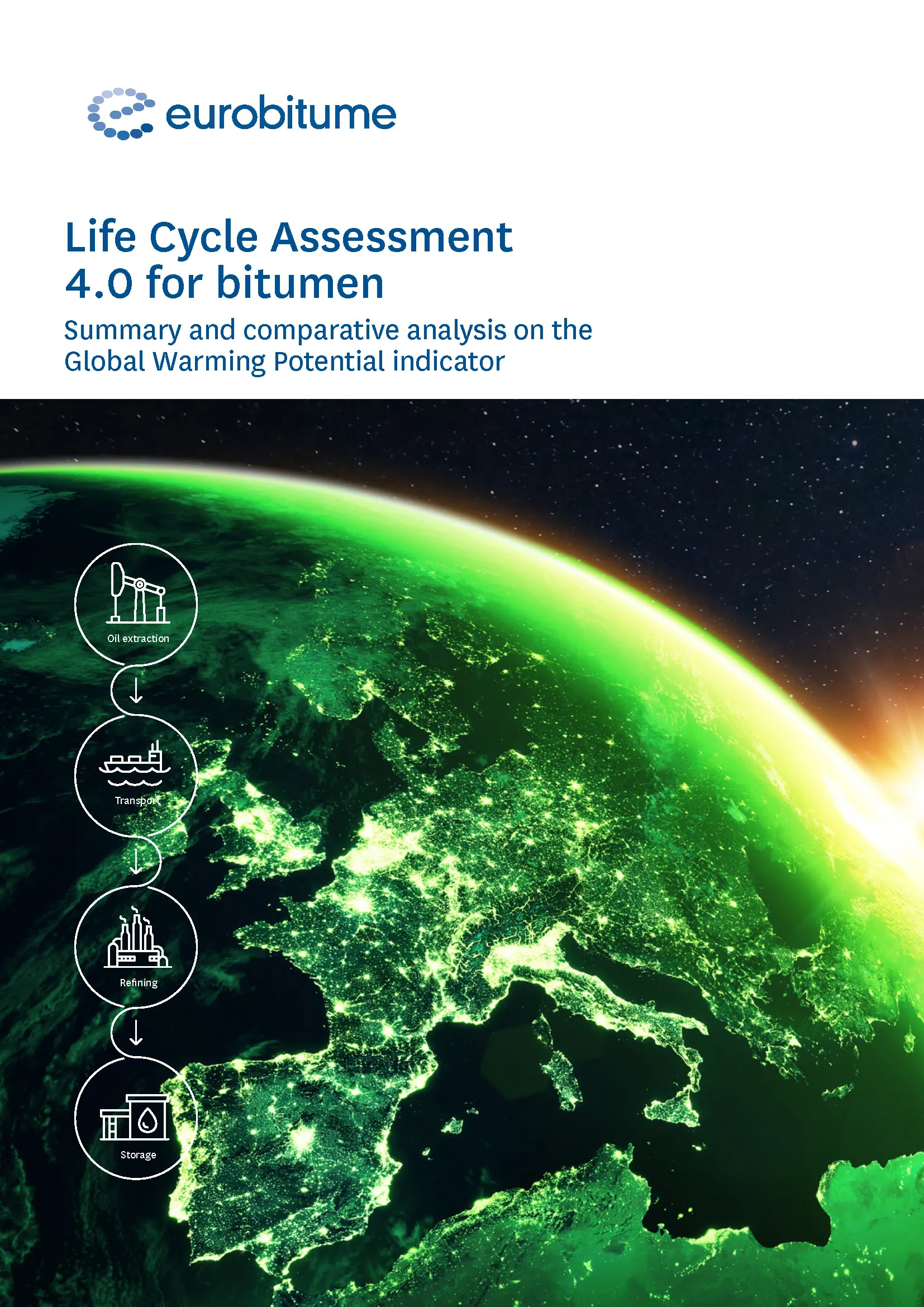
The outputs from Eurobitume LCA 4.0 are compatible with the European Standard EN15804+A2, making the report suitable for use in future EPDs for construction products.
The data sources used are all publicly available and Eurobitume LCA Report 4.0 data is compatible with commercial LCI software, enabling LCI practitioners to easily incorporate this data as part of a construction product life cycle assessment. This data can be requested by completing the form.
Further information about the bitumen Life Cycle Assessment is available on the Sustainability page of the Eurobitume website. A user-friendly FAQ has been developed to answer some of the main questions about the Eurobitume LCA Report 4.0 (2025).
Both the FAQ and the Eurobitume LCA Report 4.0 are available from the Eurobitume website.
Eurobitume has scheduled an ‘Open-to-All’ educational e-learning webinars on Wednesday 26th March - to support the publication of the Eurobitume LCA Report 4.0 (2025).








